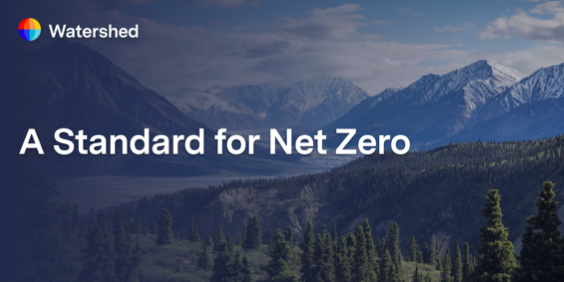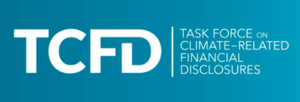Raise the Bar
Description
These resources will help you to adhere to and contribute to the ongoing development of external industry and multi-sector standards, frameworks, certifications, voluntary codes of conduct, and oversight mechanisms related to social and/or environmental performance.
Share this Practice on:LinkedIn
Resources
About Sustainability Reporting: The GRI Standards
Developed in 1997, the GRI Sustainability Reporting Standards (GRI Standards) became the first and most widely used global standards for sustainability reporting. Today, over 12,000 companies use GRI Guidelines for sustainability reports, and they continue to serve as a credible global industry standard. This link introduces the global best practices for reporting publicly on universal standards. It also dives into a range of more specific topics related to social, environmental, and economic impacts.
ISEAL Alliance
How can you know which sustainability standards are credible? ISEAL is the global membership organisation for collaborative and transparent sustainability systems. Its members include Fairtrade International, Bonscuro, Forest Stewardship Council, and Rainforest Alliance among others. ISEAL’s Community Members are sustainability standards and similar systems that collaborate to scale and demonstrate positive impact. It’s Code Compliant members go further, adhering to ISEAL’s Codes of Good Practice – a globally recognised framework for best practice. It also releases tools and resources such as its Sustainability Claims Good Practice Guide and Challenge the Label, a guide for buyers when evaluating product sustainability claims.
The Net-Zero Standard
The Science Based Targets initiative’s (SBTi) Corporate Net-Zero Standard includes the guidance, criteria, and recommendations companies need to set science-based net-zero targets consistent with limiting global temperature rise to 1.5°C. The framework consists of four parts: 1) setting near-term interim science-based targets for rapid, deep emissions cuts, 2) setting long-term science-based targets that align with reaching net-zero at the global or sector level by 2050 or sooner, 3) neutralizing residual emissions, and 4) taking action to mitigate emissions beyond the value chain. This resource also includes specific sector guidance for setting science based targets, as well as guidance for updating and communicating targets. It should be noted that SBTi has reduced their restrictions related to acceptable carbon removal practices, including offsetting, but the document highlights that only the final 5-10% of emissions may be neutralized this way in order to qualify as net-zero. It should also be noted that SBTi is now undertaking a major revision, which will result in V2.0 of the Corporate Net-Zero Standard. Until then, businesses seeking to set SBTi-aligned net-zero targets should use the current Corporate Net-Zero Standard V1.2.
A Standard for Net Zero
A wave of companies are committing to “net zero," but what does being a net zero business mean in practice? The Science Based Targets initiative has released their definition and framework for reaching net zero, and it includes allowances for up to 10% of a company's emissions profile to be removed as offsets. If you are looking for clear and appropriate criteria for "net zero" best practices that will advance you beyond this, this resource from Watershed explains how net zero differentiates from "carbon neutral" and will help you to understand the actions that are required for your company to become a genuine "net zero company."
A Business Reference Guide: United Nations Declaration on the Rights of Indigenous Peoples
Indigenous peoples have a unique and important place in the global community, and yet so many industries and organisations continue to struggle with positive and respectful engagement and co-creating mutually-beneficial business agreements. The guide is non-prescriptive, and offers insights, examples, and suggestions for a diverse range of issues and contexts that will help you to engage in meaningful and effective consultuation and partnership with indigenous people on a local level, and to adapt the principles and practices for distinct situations.
Part I explores specific business actions, such as free, prior and informed consent and grievance mechanisms, and Part II explores the UN Declaration Rights in detail, such as those related to culture, language, land, and natural resources, with suggested practical actions and examples.
The CSRD: A guide for companies
The CSRD is intended to bring sustainability reporting up to the same quality and control bar as financial reporting, and companies will need to elevate the breadth and robustness of their ESG reporting to comply with these new regulations. Watershed has created this short guide to help you to better understand the CSRD’s technical rules, also known as the European Sustainability Reporting Standards. These rules include topics such as general disclosures, social and environmental standards, and governance standards. It also unpacks how the CSRD define "double materiality" and outlines timeframes and other CSRD reporting expectations.
The Task Force on Climate-related Financial Disclosures
Momentum is growing for organisations to formally and transparently articulate the risks that climate change poses to the value of their assets and their future profitability. The Task Force on Climate-related Financial Disclosures (TCFD) emerged as a response to this call for action, empowering companies to more effectively measure and evaluate their own risks and those of their suppliers and competitors. The TCFD promoted “consistent, comparable, reliable, clear, and efficient” voluntary climate-related financial disclosures, and has developed comprehensive recommendations and resources in support of this. These resources focus on governance, strategy, risk, metrics, targets, and the use of scenario analysis for evaluating climate-related financial risks and opportunities.
The TCFD has produced a comprehensive Final Recommendations report and several supplemental reports, including a Technical supplement, which provides in-depth information and tools for using scenario analyses to understand the strategic implications of climate-related risks and opportunities to your organisation.
Although these resources remain to be an invaluable source of guidance, the Financial Stability Board (FSB) and IFRS have announced that the TCFD has fulfilled its remit and disbanded, and that monitoring of the progress of corporate climate-related disclosures now rests with the IFRS Foundation's ISSB.
The Taskforce on Nature-related Financial Disclosures
Reversing global nature loss depends on a shift in global financial flows away from nature-negative outcomes and toward nature-positive outcomes. This depends on large and small businesses across supply chains, financial institutions, and industries of all types collectively identifying, assessing, managing, and disclosing nature-related dependencies, impacts, risks, and opportunities. Towards meeting this inter-industrial challenge, the Taskforce on Nature-related Financial Disclosures (TNFD) was established in 2021 in response to the growing need to factor nature into financial and business decisions.
The TNFD has developed a market-led, science-based risk management and disclosure framework for organisations to report and act on evolving nature-related risks and opportunities. The TNFD has also developed case studies and sector-specific guidance; a Knowledge Hub that features a curated collection of the latest external resources and market insights on nature-related risks and opportunities; and an open-access Learning Lab that supports self-paced learning about nature-related issues, the TNFD recommendations, and additional guidance.
IFRS Sustainability Disclosure Standards
The IFRS Foundation is a not-for-profit responsible for developing global accounting and sustainability disclosure standards, known as the IFRS Standards. The International Sustainability Standards Board (ISSB) is an independent standard-setting body within the IFRS Foundation, and they have created a framework for the global business community to disclose material information on sustainability and exposure to climate-related risks and opportunities. This will help ensure that companies are providing consistent and comparable sustainability-related information alongside financial statements, in the same reporting package.
IFRS S1 provides a set of general reporting requirements for disclosing sustainability-related risks over the short, medium, and long term. IFRS S2 sets out specific climate-related disclosures, including the impact that climate change will have on an entity’s financial position, performance, cash flows, strategy, and business model. IFRS S2 is designed to be used with IFRS S1, and both of these standards fully incorporate the recommendations of the Task Force on Climate-related Financial Disclosures (TCFD).
Ten things to know about the first ISSB Standards
This article from the IFRS can help you understand what the new ISSB standards are about. The inaugural IFRS Sustainability Disclosure Standards were issued to provide a global baseline of sustainability-related disclosures for the capital markets. IFRS S1 requires companies to communicate the sustainability-related risks and opportunities they face over the short, medium, and long term, and IFRS S2 sets out specific climate-related disclosures and is designed to be used with IFRS S1. This article provides a useful overview for Sustainability and Finance teams that will be making use of the new standards in their corporate reporting.
Implementation Guidance for the International Sustainability Standards Board (ISSB) Standards and the European Sustainability Reporting Standards (ESRS)
This guidance from the WBCSD CFO Network can help you to better meet modern sustainability reporting requirements and respond more credibly to requests for sustainability performance information from investors, banks and regulators. It provides a side-by-side analysis of two new sustainability disclosure standards: the IFRS standard from the International Sustainability Standards Board (ISSB) and the European Sustainability Reporting Standard. It explains how to set up reporting; identifies what needs to be reported; explains how to ensure credible disclosures; and more. This guidance may be especially useful to CFOs and finance teams.
IWA 48:2024: Framework for implementing environmental, social and governance (ESG) principles
This set of ESG implementation principles from ISO can help you to better navigate the complex landscape of environmental, social, and governance expectations and to implement and embed ESG practices within your organisation. Developed through a collaborative cohort that includes the British Standards Institution (BSI), the Standards Council of Canada (SCC), and the Brazilian Association of Technical Standards (ABNT), the principles incorporate input from over 1,900 industry experts across 128 countries. They provide a high-level structure for integrating existing ESG requirements; establishing measurable and comparable key performance indicators; assessing maturity in ESG practices; and facilitating consistent, comparable, and reliable ESG reporting.
Not Fit-for-Purpose: The Grand Experiment of Multi-Stakeholder Initiatives in Corporate Accountability, Human Rights and Global Governance
Multi-Stakeholder Initiatives (MSIs) play an important role in engaging corporations, building trust and relationships, and sharing knowledge, but is it appropriate for MSIs to protect human rights, detect abuses, and hold corporations accountable? This report from MSI Integrity studies the effectiveness and impacts of forty standard-setting MSIs in upholding and protecting human rights. It researches all elements of how of MSIs operate and provides key insights into topics including stakeholder participation; standards and scope; monitoring and compliance; and impact. This report can help you to apply a critical lens to the limitations of voluntary regulation and to envision more effective strategies to protect human rights.
Standards Map
This comprehensive database from the International Trade Centre (ITC) provides free, accessible, verified, and transparent information on over 300 standards related to a wide range of sustainability topics, including worker rights, environmental protection, and business ethics. ITC also provides a Standards Map toolkit, which will help you to find information about voluntary sustainability standards, codes of conduct, audit protocols, reporting frameworks, and company programs on sustainability.
Share this Practice on:LinkedIn












